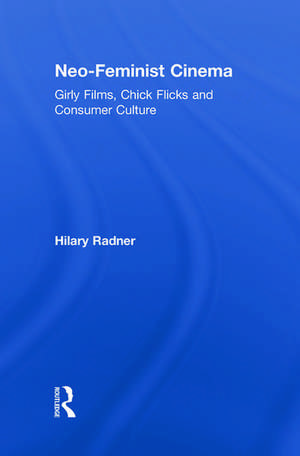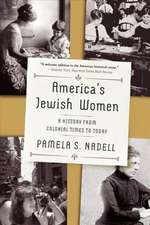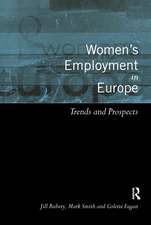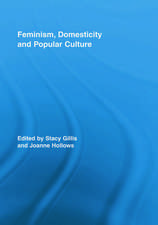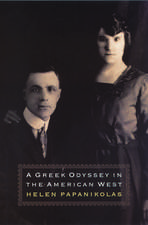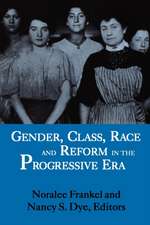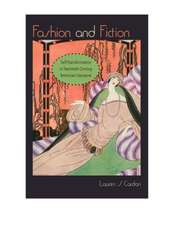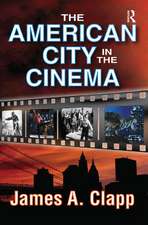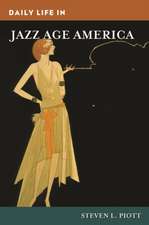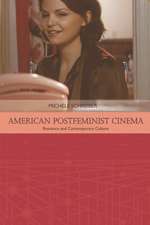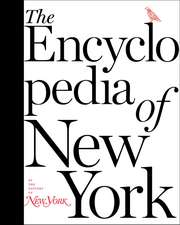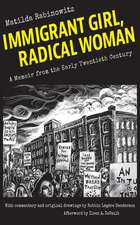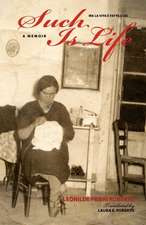Neo-Feminist Cinema: Girly Films, Chick Flicks, and Consumer Culture
Autor Hilary Radneren Limba Engleză Hardback – 25 oct 2010
Through a combination of cultural and industry analysis, Hilary Radner’s Neo-Feminist Cinema: Girly Films, Chick Flicks and Consumer Culture shows how the needs of conglomerate Hollywood have encouraged an emphasis on consumer culture within films made for women. By exploring a number of representative "girly films," including Pretty Woman, Legally Blonde, Maid in Manhattan, The Devil Wears Prada, and Sex and the City: The Movie, Radner proposes that rather than being "post-feminist," as is usually assumed, such films are better described as "neo-feminist." Examining their narrative format, as it revolves around the story of an ambitious unmarried woman who defines herself through consumer culture as much as through work or romance, Radner argues that these films exemplify neo-liberalist values rather than those of feminism.
As such, Neo-Feminist Cinema offers a new explanation as to why feminist-oriented scholars and audiences who are seeking more than "labels and love" from their film experience have viewed recent "girly films" as a betrayal of second-wave feminism, and why, on the other hand, such films have proven to be so successful at the box office.
| Toate formatele și edițiile | Preț | Express |
|---|---|---|
| Paperback (1) | 388.85 lei 6-8 săpt. | |
| Taylor & Francis – 25 oct 2010 | 388.85 lei 6-8 săpt. | |
| Hardback (1) | 1001.21 lei 6-8 săpt. | |
| Taylor & Francis – 25 oct 2010 | 1001.21 lei 6-8 săpt. |
Preț: 1001.21 lei
Preț vechi: 1220.98 lei
-18% Nou
Puncte Express: 1502
Preț estimativ în valută:
191.57€ • 200.04$ • 158.20£
191.57€ • 200.04$ • 158.20£
Carte tipărită la comandă
Livrare economică 15-29 aprilie
Preluare comenzi: 021 569.72.76
Specificații
ISBN-13: 9780415877732
ISBN-10: 0415877733
Pagini: 240
Ilustrații: 36 Halftones, black and white
Dimensiuni: 152 x 229 x 14 mm
Greutate: 0.48 kg
Ediția:1
Editura: Taylor & Francis
Colecția Routledge
Locul publicării:Oxford, United Kingdom
ISBN-10: 0415877733
Pagini: 240
Ilustrații: 36 Halftones, black and white
Dimensiuni: 152 x 229 x 14 mm
Greutate: 0.48 kg
Ediția:1
Editura: Taylor & Francis
Colecția Routledge
Locul publicării:Oxford, United Kingdom
Public țintă
Postgraduate and UndergraduateCuprins
Introduction: Reassessing Feminism and Popular Culture. 1. Neo-feminism and the Rise of the Single Girl 2. Pretty Woman and the Girly Film: Defining the Format 3. Romy and Michele’s High School Reunion: Female Friendship in the Girly Film 4. Legally Blonde: "A Pink Girl in a Brown World" 5.Jennifer Lopez: Neo-Feminism and the Crossover Star 6. Maid in Manhattan: A New Fairy Tale 7. Hit Movies for "Femmes" 8. The Devil Wears Prada: The Fashion Film 9. Sex and the City: The Movie: The Female Event Film 10. Something’s Gotta Give: Nancy Meyers, Neo-Feminist Auteur. Conclusion: Post-feminism and Neo-feminism
Notă biografică
Hilary Radner is Professor and Foundation Chair of Film and Media Studies at the University of Otago in New Zealand. She is author of Shopping Around: Feminine Culture and the Pursuit of Pleasure and co-editor of several books including New Zealand Cinema: Interpreting History (forthcoming); Jane Campion: Cinema, Nation, Identity; Swinging Single: Representing Sexuality in the 1960s; Constructing the New Consumer Society; and Film Theory Goes to the Movies, also published by Routledge.
Recenzii
"Radner's work is both compelling and thought provoking, and she successfully pinpoints the media's version of contemporary society's ideal woman."
—Adrienne Urbanski in Elevate Difference, January 2011
Scholars and women are continually perplexed in our attempts to articulate the overlaps between the "feminist" and the "feminine" and to understand the historical transformations of these terms, and the recent development of "postfeminism(s)" and new forms of femininities. In this spectacular and important new work of feminist film theory, Radner significantly advances the debate about feminism and its "posts" with her theory of neo-feminist culture. Using popular Hollywood films effectively to illustrate her argument, Radner traces the history of our culture’s simultaneous incorporation and transformation of feminism in its political, personal, and social dimensions. Her theoretically sophisticated analysis of the complicated influence feminism has had on our popular culture and thinking will be equally useful to cultural and film theorists, students, and general readers. Neo-Feminist Cinema is culturally sophisticated film theory at its best.
—Andrea L. Press, University of Virginia author of Women Watching Television, Speaking of Abortion, The New Media Environment, and co-editor of The Communication Review.
This is a compelling and much-needed book. Summing Up: Highly recommended.
—CHOICE June 2011 issue; reviewed by G.A. Foster, University of Nebraska-Lincoln.
—Adrienne Urbanski in Elevate Difference, January 2011
Scholars and women are continually perplexed in our attempts to articulate the overlaps between the "feminist" and the "feminine" and to understand the historical transformations of these terms, and the recent development of "postfeminism(s)" and new forms of femininities. In this spectacular and important new work of feminist film theory, Radner significantly advances the debate about feminism and its "posts" with her theory of neo-feminist culture. Using popular Hollywood films effectively to illustrate her argument, Radner traces the history of our culture’s simultaneous incorporation and transformation of feminism in its political, personal, and social dimensions. Her theoretically sophisticated analysis of the complicated influence feminism has had on our popular culture and thinking will be equally useful to cultural and film theorists, students, and general readers. Neo-Feminist Cinema is culturally sophisticated film theory at its best.
—Andrea L. Press, University of Virginia author of Women Watching Television, Speaking of Abortion, The New Media Environment, and co-editor of The Communication Review.
This is a compelling and much-needed book. Summing Up: Highly recommended.
—CHOICE June 2011 issue; reviewed by G.A. Foster, University of Nebraska-Lincoln.
Descriere
Neo-Feminist Cinema examines how Hollywood has responded to women’s changing social roles. Radner pays particular attention to how the contemporary woman’s film portrays what some have called postfeminism and what the author redefines as neo-feminism, represented by figures such as Helen Gurley Brown—women for whom work was a necessity, rather than a right or even a privilege. Popular films explored include He’s Just Not That Into You, The Devil Wears Prada, Bride Wars, Sex and the City, and many more.
